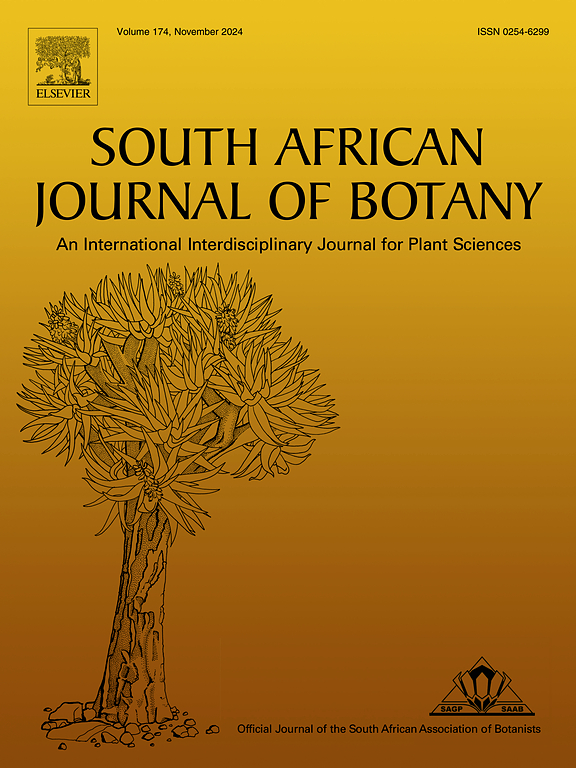工业灌木长柄扁桃的微繁
IF 2.7
3区 生物学
Q2 PLANT SCIENCES
引用次数: 0
摘要
长柄扁桃(Amygdalus pedculata)是一种具有重要经济价值的灌木,是生产活性炭、生物柴油和环境修复的重要原料。由于长柄木犀的自然繁殖率低和过度采伐,使其处于濒危状态,因此需要大量优质苗的快速繁殖。在这项研究中,我们建立并优化了一种体外育苗方案。优化的外植体消毒方案为:70%乙醇消毒30 s, 2%次氯酸钠(NaClO)消毒20 min。在Murashige-Skoog (MS)培养基中添加0.5 mg/L 6-苄基氨基嘌氨酸(6-BA)和0.1 mg/L 2,4-二氯苯氧乙酸(2,4- d)实现芽诱导。在含有0.1 mg/L 6-BA和0.3 mg/L吲哚-3-丁酸(IBA)的MS培养基中促进后续芽增殖。在添加0.3 mg/L IBA和0.1 mg/L 1-萘乙酸(NAA)的半强MS (1/2 MS)培养基上诱导生根。最后,用泥炭、珍珠岩和蛭石组成的基质混合物(体积比分别为6:3:1)进行植物硬化。开发的方案,使体外生产大量的长柄蒿幼苗具有高水平的离体存活率,为这种重要的经济植物的工业开发和保护打开了大门。本文章由计算机程序翻译,如有差异,请以英文原文为准。
Micropropagation of Amygdalus pedunculata, an industrial shrub
Amygdalus pedunculata, an economically important shrub, is useful as a raw material for activated carbon and biodiesel production and for environmental restoration. Because A. pedunculata is currently endangered owing to its naturally low reproductive rate and over-harvesting, the rapid propagation of large numbers of high-quality seedlings is necessary. In this study, we developed and optimized an in vitro protocol for A. pedunculata seedling production. The optimized disinfection protocol of explants using 70 % ethanol for 30 s followed by treatment with 2 % sodium hypochlorite (NaClO) for 20 min. Bud induction was achieved by supplementing Murashige-Skoog (MS) medium with 0.5 mg/L 6-benzylaminopurine (6-BA) and 0.1 mg/L 2,4-dichlorophenoxyacetic acid (2,4-D). Subsequent bud proliferation was promoted using MS medium containing 0.1 mg/L 6-BA combined with 0.3 mg/L indole-3-butyric acid (IBA). Rooting induction was carried out on half-strength MS (1/2 MS) medium supplemented with 0.3 mg/L IBA and 0.1 mg/L 1-naphthaleneacetic acid (NAA). Finally, plant hardening was performed using a substrate mixture composed of peat, perlite, and vermiculite in volumetric ratios of 6:3:1, respectively. The developed protocol, which enables the in vitro production of a large number of A. pedunculata seedlings with high levels of ex vitro survival, opens the door to the industrial exploitation and conservation of this economically important plant.
求助全文
通过发布文献求助,成功后即可免费获取论文全文。
去求助
来源期刊

South African Journal of Botany
生物-植物科学
CiteScore
5.20
自引率
9.70%
发文量
709
审稿时长
61 days
期刊介绍:
The South African Journal of Botany publishes original papers that deal with the classification, biodiversity, morphology, physiology, molecular biology, ecology, biotechnology, ethnobotany and other botanically related aspects of species that are of importance to southern Africa. Manuscripts dealing with significant new findings on other species of the world and general botanical principles will also be considered and are encouraged.
 求助内容:
求助内容: 应助结果提醒方式:
应助结果提醒方式:


